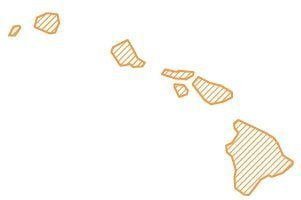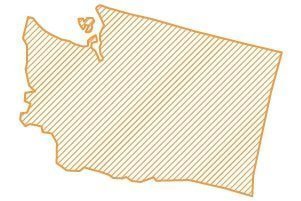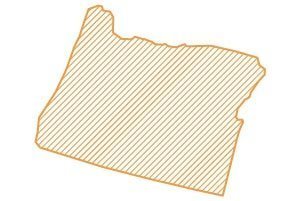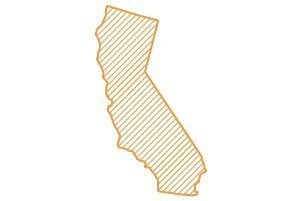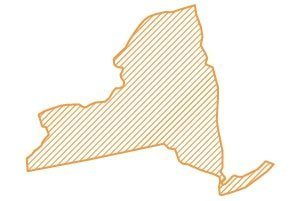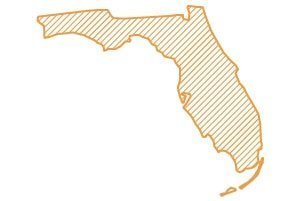Master’s programs in Applied Behavior Analysis (ABA) in Alaska take place within a unique context: much of the population lives in small, hard-to-reach communities, which presents challenges in delivering mental health and developmental services. For this reason, training programs emphasize preparing professionals who can serve remote regions where the need for specialized support is greatest.
Although options are more limited compared to other states, graduate-level ABA pathways in Alaska are aligned with statewide efforts to expand mental health and developmental disability services.
Quick Facts
- ABAI/VCS-Aligned Programs: 2
- Average Program Length: 18 – 48 credit hours
- Tuition Range (per credit): $513 – $1,180
Masters Programs in Alaska to Become a BCBA
Throughout the academic program, students learn to assess behavior, design individualized intervention plans, and use data to track progress, with a focus on populations with autism, developmental disabilities, and other behavioral challenges. The combination of theoretical training and supervised practice guides the process toward BCBA® certification in Alaska.
To achieve certification, candidates must:
- Pass the national exam administered at Pearson VUE centers in the state.
- Complete a master’s degree that includes the Verified Course Sequence (VCS).
- Accumulate supervised experience hours under the guidance of a credentialed BCBA.
ABAI Accredited Masters Programs in Alaska
In a state where much of the population lives in small, hard-to-reach communities, having programs accredited by the Association for Behavior Analysis International (ABAI) is essential. This accreditation ensures that graduates are prepared for professional practice in challenging settings, giving confidence to employers such as school districts, tribal health organizations, and regional clinics.
Pursuing an ABAI-accredited master’s degree in Alaska typically involves:
- A graduate program that combines small-cohort instruction with structured, faculty-mentored practice in schools, clinics, and community agencies, often organized so students can provide services in remote locations.
- A curriculum that includes a Verified Course Sequence (VCS) aligned with BCBA® content areas (assessment, intervention, measurement, ethics, and research methods), along with documented supervision that counts toward certification.
For those who plan to stay and serve in the region, this accreditation can make a meaningful difference in both their professional development and the impact of their work.
University of Alaska Anchorage
- Anchorage, Alaska
- 48 hours
- Campus
Modality: On Campus
GRE Required: not specified
Program: Master of Science (MS) in Clinical Psychology – Behavior Analysis Track
Length: 48 credit hours
Tuition: $513 per credit hour (in-state); $1,180 (out-of-state).
Program Overview
UAA’s program stands out nationally as one of the few that combines training in clinical psychology with an official concentration in behavior analysis—something uncommon in other states. The curriculum is designed to prepare professionals to address mental and behavioral health needs in rural and culturally diverse communities, with particular emphasis on Alaska Native populations.
Key Highlights
- Access to clinical training at UAA’s Psychological Services Center, where students work with real patients under supervision
- Opportunities to collaborate on research projects focused on autism, substance abuse, and community mental health
Additional Considerations
- The program maintains partnerships with state agencies and health organizations, expanding practicum opportunities beyond campus
- The small-cohort structure fosters an intensive mentoring environment, supporting individualized professional and academic development
Accreditation
- Program-Specific: Verified Course Sequence (VCS) approved by ABAI
- Institutional: Northwest Commission on Colleges and Universities (NWCCU)
ABA Certificate Programs in Alaska
A streamlined option for professionals with a prior degree (bachelor’s or master’s) who want to specialize without completing another full graduate program. These certificates typically cover the academic requirements for BCaBA® or BCBA® eligibility, depending on the applicant’s educational background, and usually range from 15-21 credits.
Key Points:
- Valid academic pathway: Designed to meet the coursework eligibility for BCaBA®/BCBA® depending on prior training.
- Focused workload: Programs of 15–21 credits that allow progress without the commitment of a full graduate degree.
- Supervised practice: While not always built into the curriculum, institutions often help students arrange practicum experiences with qualified supervisors in their local community.
University of Alaska Anchorage
- Anchorage, Alaska
- 18 hours
- Campus + Hybrid
Modality: On-campus (some courses may be available in hybrid format)
GRE Required: not applicable
Program: Occupational Endorsement Certificate (OEC) in Applied Behavior Analysis
Length: 18 credit hours
Tuition: $513 per credit hour for in-state residents and $1,180 per credit hour for out-of-state residents. With a total of 18 credit hours required, the total program cost is around $9,234 for in-state students and $21,240 for out-of-state students. Does not include additional fees, materials, or personal expenses.
Program Overview
Unlike a conventional certificate, UAA’s OEC in ABA is designed to be integrated into ongoing undergraduate programs, allowing students to earn an applied credential while progressing in their main degree. The curriculum covers behavioral intervention techniques, program design, and clinical applications in autism and other neurodevelopmental conditions.
Key Highlights
- Specialized courses such as Behavior Change Strategies and Behavioral Treatment of Autism Spectrum Disorder, which expose students to applied interventions early in their studies
- Verified Course Sequence (VCS) approved by ABAI, ensuring alignment with international standards for BCaBA®
Additional Considerations
- Can be completed in parallel with a bachelor’s degree in Psychology or other fields, without significantly extending overall study time
- Provides access to local practice networks in Anchorage and surrounding communities, facilitating supervised experience opportunities after academic training
Accreditation
- Institutional: Northwest Commission on Colleges and Universities (NWCCU)
- Program-Specific: Verified Course Sequence (VCS) approved by ABAI
University of Alaska Anchorage
- Anchorage, Alaska
- 18 hours
- Campus
Modality: On-campus
GRE Required: not applicable
Program: Minor in Behavior Analysis
Length: 18 credit hours
Tuition: $513 per credit hour (in-state); $1,180 (out-of-state).
Program Overview
This minor provides a structured pathway to formally engage in behavior analysis within the Department of Psychology, based on intermediate/advanced-level courses and thematic options that cover autism treatment, challenging behaviors, organizational applications (OBM), and general ABA applications.
It highlights the broad reach of the discipline in addressing socially significant issues, from education and health to workplace performance and safety, and is particularly valuable for those seeking employment in agencies offering behavioral services or planning graduate studies in ABA or experimental psychology.
Key Highlights
- Includes practical courses such as Behavior Change Strategies and a behavior analysis practicum, exposing students to applied settings during their undergraduate studies
- Recognized for its contribution to UAA’s academic pipeline: many graduates of the minor continue on to the MS in Clinical Psychology – Behavior Analysis Track
Additional Considerations
- Compatible with multiple undergraduate majors (psychology, education, health sciences), broadening professional opportunities
- Offers the possibility of community internships that strengthen the profile of students pursuing certifications or graduate studies
Accreditation
- Institutional: Northwest Commission on Colleges and Universities (NWCCU)
- Program-Specific: Not specified under ABAI accreditation (minors are typically not accredited by ABAI)
BCBA Legislation in Alaska
Alaska regulates the practice of behavior analysts through a state license administered by the Division of Corporations, Business & Professional Licensing. The licensing system, created by law in 2014, sets requirements for issuance, renewal, and possible sanctions, and also includes a short-term temporary license for limited periods of practice.
In addition, state law requires autism coverage in private insurance plans, including ABA therapy when medically necessary. This mandate applies to individual and group policies regulated by the state and specifies which treatments and procedures must be covered.
BCBA Demand in Alaska
Demand for BCBAs in Alaska is sustained by insurance and Medicaid coverage for ABA, coupled with persistent access gaps in rural and remote communities. Roles span public schools, regional and tribal health organizations, hospitals/clinics, and community agencies; many employers value experience delivering services across large geographies or via hybrid/telehealth models.
As for salaries, estimates place Alaska above national averages:
ZipRecruiter reports about $95,929/year statewide $46.12/hour, and Indeed lists averages around $81,000/year, with Anchorage postings near $80–90k and higher ranges at specialized providers.
With licensure in place, mandated coverage, and Medicaid reimbursement, job growth for certified analysts is expected to remain strong—especially for practitioners able to support school-based services, early intervention, and community programs across the state’s dispersed population centers.


